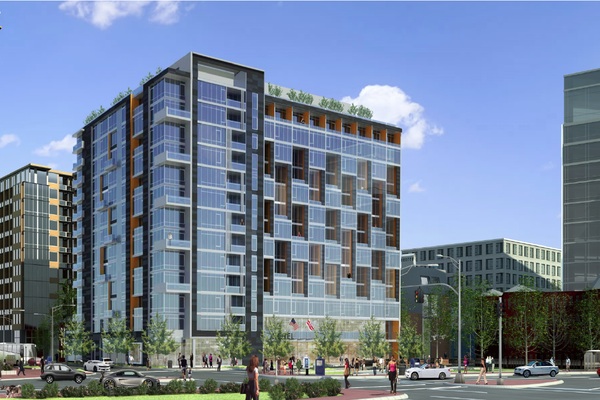Lax Enforcement of Affordable Housing Requirements in D.C.'s Negro Removal/Gentrification Shake Up: But Plush Hotels, condos, and dog spas Abound for White Folks
/Now thats Nice. From [HERE] Since 2000, the District has generally required that when it sells publicly-owned land, part of the deal include new affordable housing for lower-income residents. But more recently, that commitment has waned. A bill in the DC Council could rejuvenate it by requiring affordable housing in city land development deals.
The trend of weakening the city's commitment to affordable housing reached a new level last May, when the Deputy Mayor for Planning and Economic Development (DMPED) picked a proposal to develop a city-owned half acre at 5th & I Streets NW.
While the bidders who proposed housing offered some affordable housing in the new building, the winning proposal by Peebles Corp. and the Walker Group put a hotel, condos, and a dog spa in the Mount Vernon Triangle while offering to build affordable housing somewhere else—perhaps at a site it owns in Anacostia, about 3 miles away.
DC needs affordable housing, and there are good reasons to build it inside developments on public land instead of far away. Mixed-income communities are valuable to a city that wants to be diverse and inclusive. Mixed-income neighborhoods give people of different backgrounds better access to jobs, transit, schools, and other amenities. These communities build opportunity for less affluent people.
Mixed-income neighborhoods also ensure that as central city neighborhoods get more valuable, not just the wealthiest people benefit. They encourage people to interact with neighbors with varying income levels, and help transportation like bicycling or streetcars, which run shorter distances, to not be only services for higher-income people.
While most traditional tools for creating affordable housing add new units in higher-poverty areas, DC's land dispositions and inclusionary zoning policies are creating affordable housing in stronger real estate markets such as Columbia Heights, and even Chevy Chase.
When the DC government sells surplus parcels of public land for private development, it traditionally asks that at least some of the new housing built be affordable. Mayors Anthony Williams and Adrian Fenty sought and built substantial amounts of affordable housing in city-owned parcels like City Vista at 5th & K Streets NW or the new housing around the Columbia Heights Metro station. Unfortunately, the Gray administration has generally asked for far less affordability in public land deals.
The Peebles/Walker proposal represented yet another step away from the goal of mixed-income communities.
There's still time to revisit this poor decision, and fix the longer-term problem of the city's faltering commitment to affordable housing in public land deals. The DC Council will need to approve the 5th and I deal. Economic Development committee chair Muriel Bowser and her colleagues on the council should reconsider this deal.






































































































































































































































































